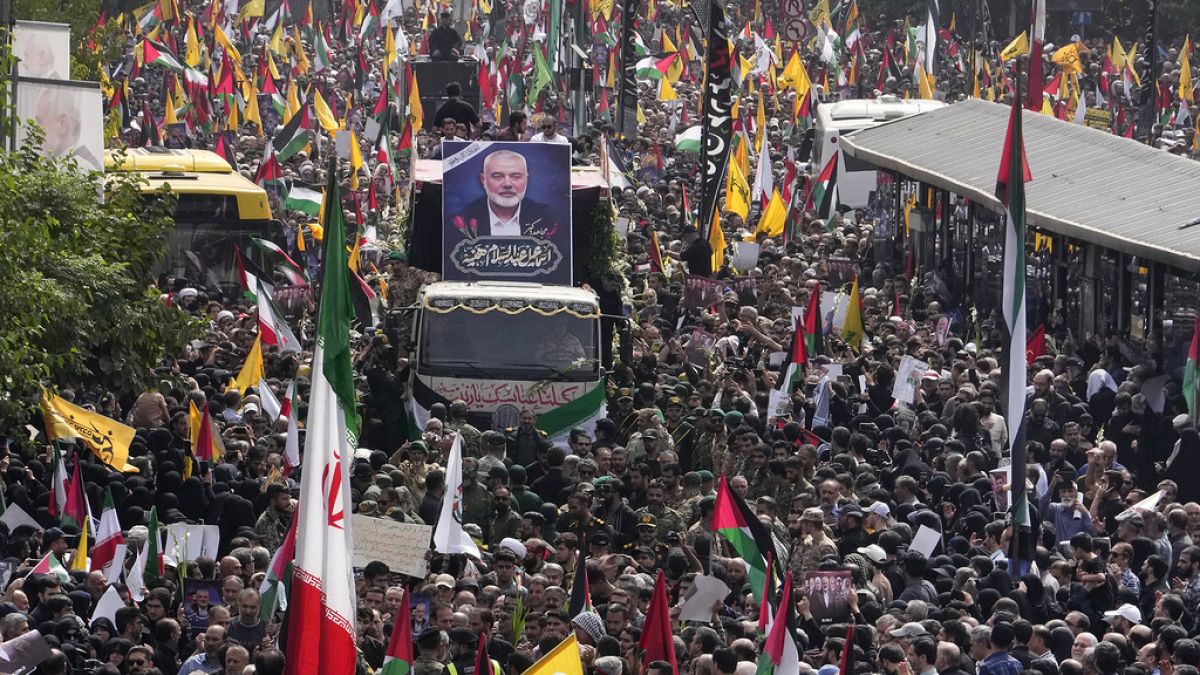The shocking assassination of Hamas leader Ismail Haniyeh and his bodyguard, blamed on Israel, has raised tensions in the Middle East. Iran’s supreme leader and representatives of Palestinian militias prayed over Haniyeh’s coffin, showing support for the slain leader. Haniyeh was killed in an airstrike in Tehran, where he was attending the inauguration of Iran’s new President. The attack has been condemned by US Secretary of State Antony Blinken, who called for a ceasefire between Israel and Hamas to end the cycle of violence.
Israel had threatened to kill Haniyeh and other Hamas leaders following an attack on southern Israel by the group earlier this month. Iran, a supporter of Hamas and other Palestinian militant groups, has vowed to investigate the assassination. The killing comes in the context of rising tensions between Israel and Iran, with both countries engaging in retaliatory strikes against each other earlier this year.
Speaking at the inauguration ceremony of Iran’s new President, Masoud Pezeshkian, support for Palestinians was voiced. Pezeshkian emphasized Iran’s desire for a world where Palestinian children’s dreams are not shattered by conflict. Meanwhile, Israeli Prime Minister Benjamin Netanyahu warned of consequences for any aggression against Israel, following Haniyeh’s killing. The situation has drawn concern from the United Nations and other international leaders who fear a further escalation of conflict in the Middle East.
UN Secretary-General Antonio Guterres has called for a ceasefire in Gaza, the release of Israeli hostages, increased humanitarian aid for Palestinians, and a return to calm in Lebanon. The UN has expressed concern over the recent strikes in South Beirut and Tehran, deeming them as a dangerous escalation. The situation has prompted Italy’s Foreign Minister and deputy prime minister to voice fears of a potential open war in the Middle East. The international community is urging all parties to prioritize peace and dialogue to avoid further bloodshed in the region.










